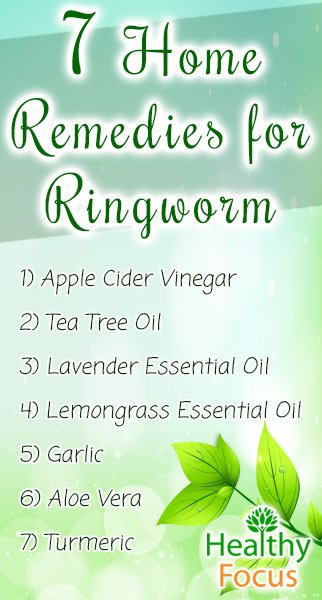Last Updated on June 27, 2018 by Marc Seward
If you are not familiar with ringworm, you may be misled by its name or imagine something far worse, like a sinister worm lurking in your pores, attacking you from the inside. Fortunately, it is nothing gruesome.
In fact, ringworm is a fungal infection that may affect your skin or scalp. Ringworm may makes its debut as red patches on the skin and then may spread to other parts of the body. The parts of the body most vulnerable to a ringworm infection are the scalp, the beard area, groin, feet, etc. Its highly contagious in nature, however, it is also very treatable.
Signs and Symptoms
If you suspect that you have ringworm, you may have some of the following symptoms:
- Raised patches of skin that are scaly, red, or itchy
- These patches may blister or secrete liquid
- These suspect patches may also appear to be in the shape of a ring or have a darker red appearance on the outside edges of the patch
- The edges of the patch may also be raised
- If you’re experiencing ringworm of the scalp, you may develop bald patches
Ringworms preferred environment is in warm, moist areas and can affect any part of the body. Some common ringworm infections are referred to as athlete’s foot (affecting the feet) and jock itch (affecting the groin area).
Causes of Ringworm
Ringworm is a fungal infection of the skin. The fungi responsible for this infection are epidermophyton, trichophyton, and microsporum. These particular strains of fungi may exist in soil and may infect animals and humans that come into contact with the contaminated soil. Humans, especially children, may then spread ringworm through direct contact or by contaminating objects, such as towels and blankets.
Home Remedies
Due to its highly contagious nature, it is important to treat ringworm right away. Eliminating the infection altogether may be difficult, however, there are several remedies that can help curb the unpleasant and uncomfortable symptoms. When treating ringworm, there are a few things you should keep in mind:
- Always consult a physician when you notice an infection or irregularity of the skin
- While treating ringworm, always keep the infected area clean & dry. As mentioned above, ringworm likes to prey on moist areas.
- Avoid anything that may cause further irritation of the affected area
- While treating ringworm, be sure to wash all of your sheets, towels, and any clothing that may have come into contact with the affected area. Ringworm is extremely contagious and can easily spread to other parts of your body or infect other people that come into contact with contaminated objects.
- When using such home remedies on your skin as apple cider or essential oils, always do an allergy patch test beforehand to make sure that your skin does not have adverse reaction.
Now that we’ve gotten the precautions squared away, below are some home remedies that will help hasten the healing of the infection.
1) Apple Cider Vinegar
Ding! Ding! Ding! If you guessed that apple cider vinegar was going to be on this list, you were right. Seemingly, there is nothing that ACV can’t cure. Fortunately for you ringworm sufferers, ringworm is weak to the holy powers that is apple cider vinegar.
The anti-fungal agent known as acetic acid in ACV treats a wide array of skin infections, including ringworm.
- To use ACV to treat your mild case of ringworm, dip a cotton ball or some cloth in some ACV and leave on the affected area for a 30 minutes.
- If you experience of stinging, dilute the ACV with water.
- Apply this application 2-3 times day everyday until the infection clears up.
2) Tea Tree Oil
Tea tree oil is world-renowned for its anti-fungal, anti-septic and anti-bacterial qualities. Used in medicine for centuries, this essential oil treats burns, cuts, and skin infections.
- To use tea tree oil for your ringworm, dilute the tea tree oil in a carrier oil and apply directly to the affected area twice a day.
- Using this home remedy should clear up your infection in about four weeks.
3) Garlic
Whether its ingested or applied topically, garlic is an infection’s greatest enemy. When ingested, garlic boosts your immune system, better equipping your body to fight infection and cutting down healing time.
The antibacterial and antifungal properties of garlic make it an ideal topical treatment for skin infections such as ringworm. To ingest garlic would be a benefit to your overall health, so add to your meals whenever you can.
To make a topical paste, crush a fresh clove of garlic and add a bit of olive oil to get a nice consistency.
- Apply a thin layer of the paste over the infected area and leave on for an hour or two.
- Rinse with warm water. For the best results apply this treatment two to three times a day for two weeks.
- During each treatment, do not leave on the garlic clove for more than two hours as it may start to burn your skin.
4) Lavender Essential Oil
For those of you that prefer natural remedies, lavender essential oil is probably a staple in your medicine cabinet. This soothing essential oil not only relaxes you and soothes an upset psyche, it also treats a number of infections.
Loaded with antifungal, antibacterial, and antiseptic properties, this healing essential oil not only helps to heal your skin, but also kills the fungus responsible for the infection in the first place.
To experience the healing properties of lavender essential oil, mix a couple drops in a carrier oil and apply directly to the affected area twice a day, every day.
5) Lemongrass Essential Oil
Whether it is applied topically or ingested in the form of a tea, the natural antibacterial and antifungal properties make lemongrass an effective treatment to fight infection. In terms of ringworm, the most effective way to use lemongrass is to apply lemongrass essential oil.
- Simply dilute three or so drops of lemongrass essential oil with a carrier oil.
- Apply this mixture four times a day until your infection starts to clear up.
6) Aloe Vera
This soothing remedy not only helps to heal upset skin, but it also effectively clears up infections as well. Loaded with antibacterial and antifungal properties, aloe vera helps reduce healing time while soothing uncomfortable symptoms. Take an aloe vera leaf and slice it to reveal the healing gel inside the leaf.
- Apply this gel directly to the affected area and let sit for 30 minutes.
- Rinse off with warm water.
- Repeat this remedy twice a day everyday until the infection clears up.
- If you don’t have access to an aloe vera plant, aloe vera gel purchased from the store works just as well.
7 ) Turmeric
Turmeric is a natural antibiotic without the severe, unpleasant side effects of antibiotics used in traditional medicine. Ringworm doesn’t stand a chance against turmeric’s antifungal, antibacterial, antiseptic, and anti-microbial properties.
If turmeric is your weapon of choice against ringworm, you can use it in powder, oil, paste, or juice form.
- If using fresh turmeric root, grind it up and add a dash of water until it develops into a paste.
- Apply it directly to the infected area and leave on for 15 minutes.
- Wash off with a gentle soap and warm water.
- Apply this remedy twice a day.



Leave a Reply
You must be logged in to post a comment.